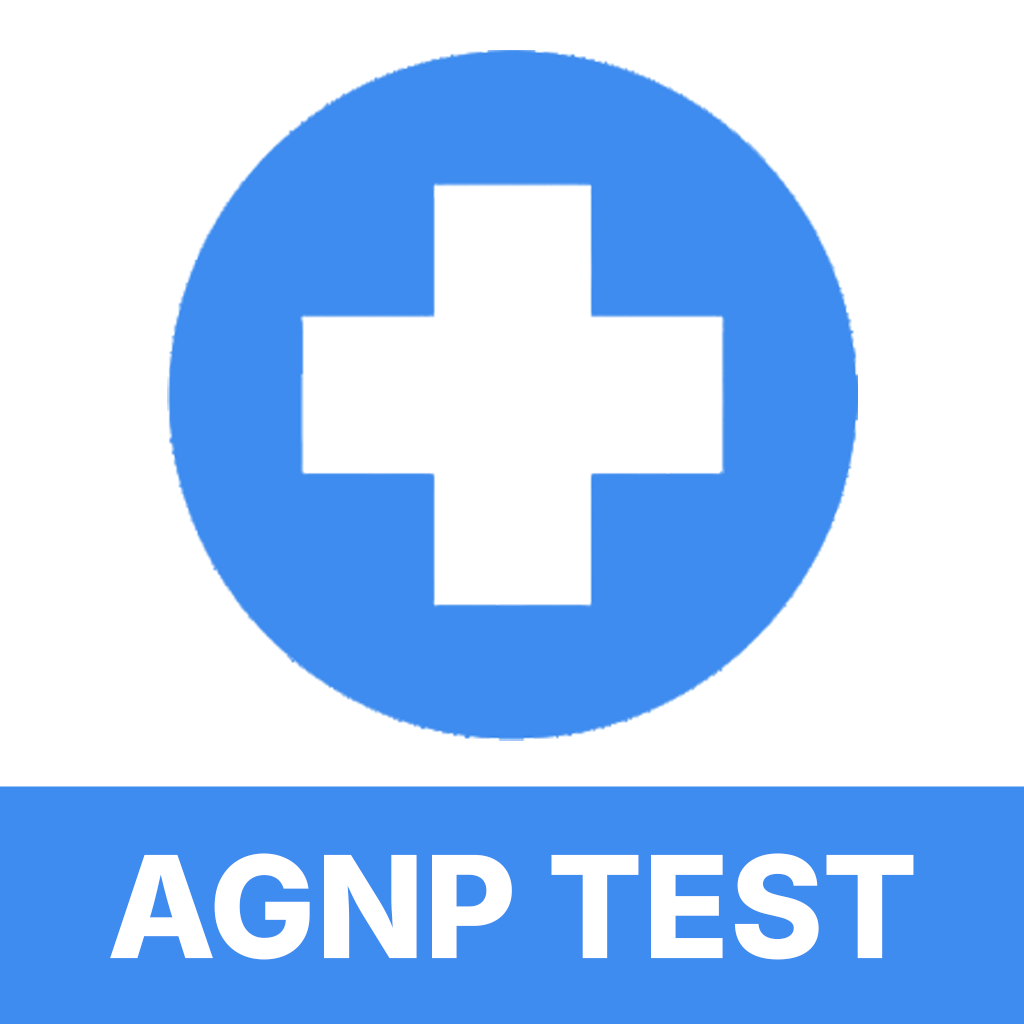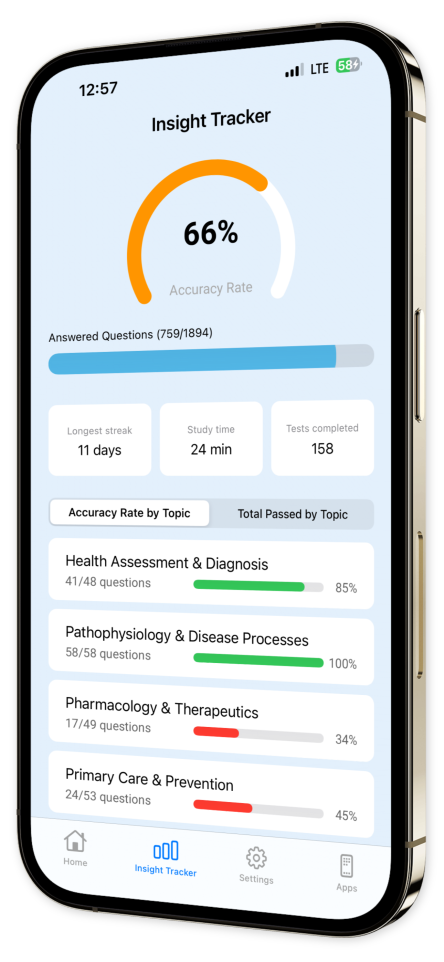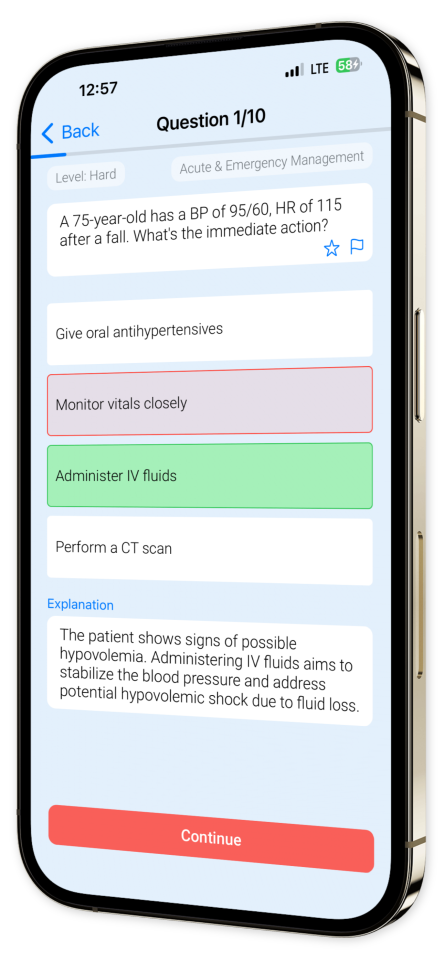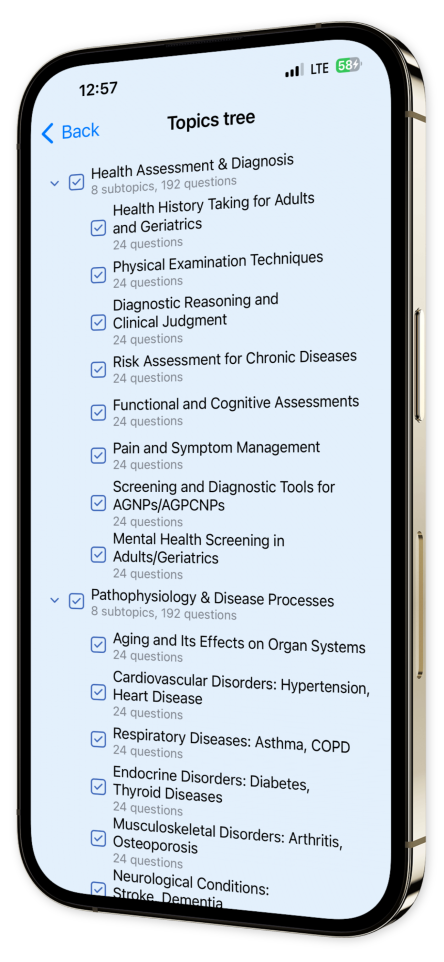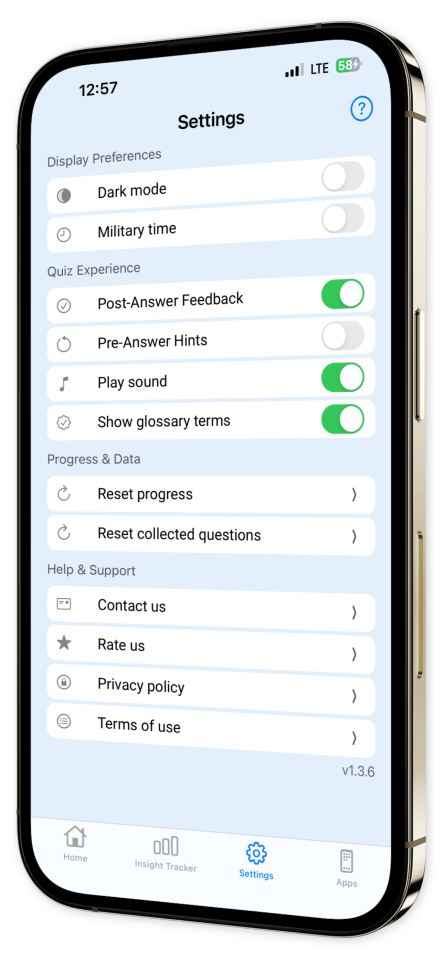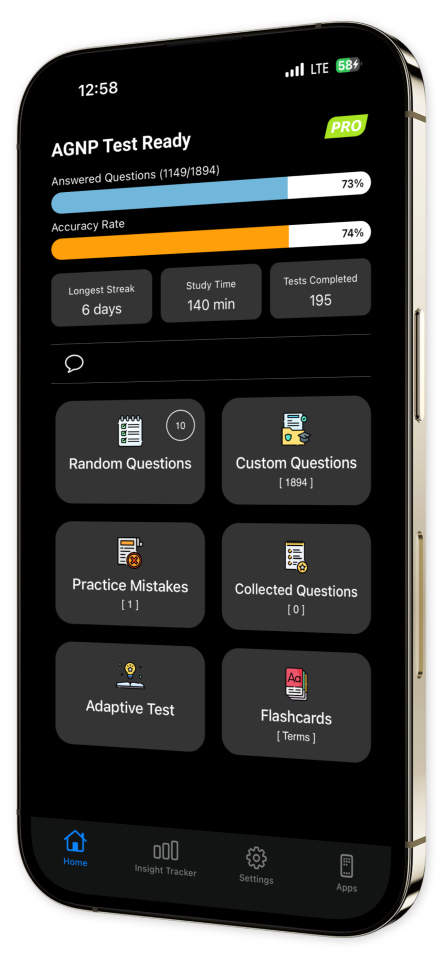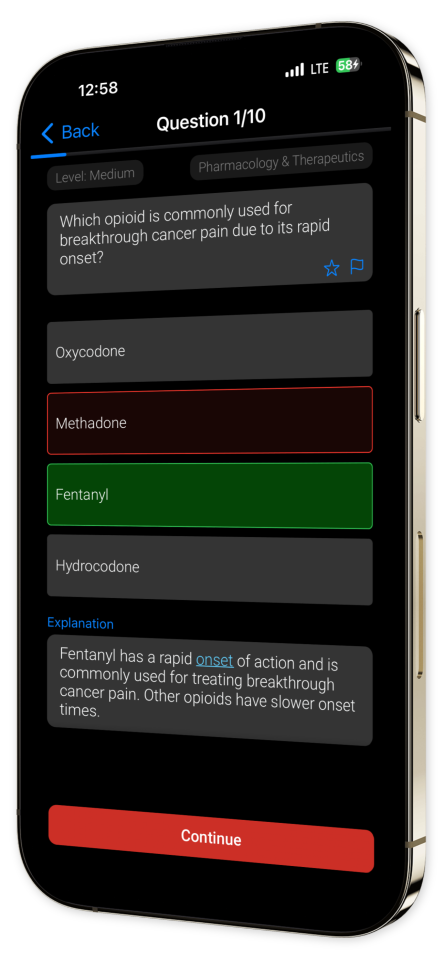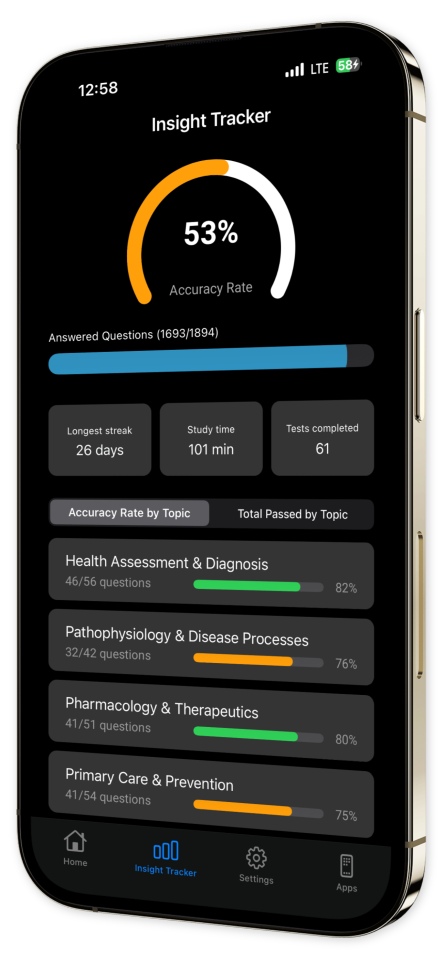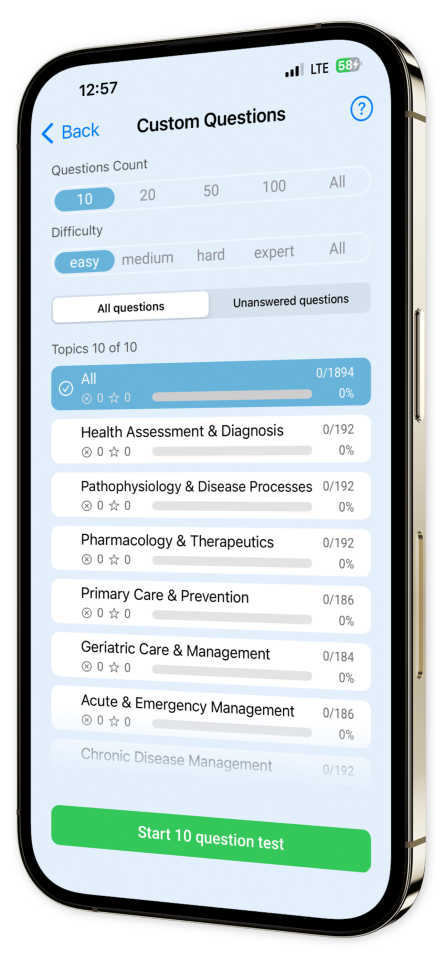
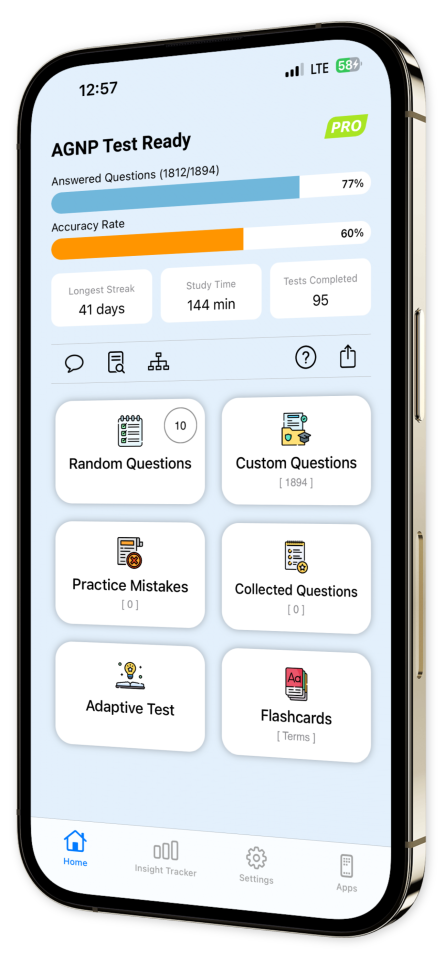
AGNP Test Ready iOS
Elevate your AGNP exam preparation with AGNP Test Ready!
Our app immerses you in an authentic test environment, equipping you with a vast array of practice questions covering every pivotal area needed for Adult-Gerontology Primary Care Nurse Practitioner certification.
Delve deeper into each question with detailed explanations designed to enhance understanding and refine your skills.
Key Features:
Extensive Question Bank: Dive into a robust collection of practice questions focusing on essential topics to ensure a comprehensive preparation experience.
In-Depth Explanations: Empower your learning journey with precise rationales accompanying each question to strengthen your knowledge retention.
Custom Test Creation: Take control of your study sessions by crafting personalized quizzes targeting specific subjects and question types that demand your attention.
Progress Tracking: Monitor your advancement diligently with intuitive progress tracking tools that highlight your improvement trajectories over time.
Offline Access: Enjoy the freedom to study anywhere, anytime, even without internet connectivity, perfect for revision on the move.
User-Friendly Interface: Immerse yourself in a seamless and intuitive app design that accentuates focus and study efficacy.
Download AGNP Test Ready today and transform your preparation strategy into a formidable force for conquering your Adult-Gerontology Primary Care Nurse Practitioner certification!
Brilliant preparation, brilliant results.
Step into success with AGNP Test Ready by your side!
Content Overview
Explore a variety of topics covered in the app.
Example questions
Let's look at some sample questions
How often should adult patients update their health history?
Once a yearEvery two yearsEvery five yearsOnly with major health changes
Updating health history annually allows healthcare providers to track changes and address potential health issues timely.
What type of question is most effective for understanding a patient's health belief model?
Closed-endedMultiple choiceOpen-endedTrue or false
Open-ended questions allow patients to express beliefs and attitudes regarding health behaviors.
When documenting a geriatric patient's health history, what specific aspect is crucial to assess medication management compliance?
Frequency of dosageAbility to understand instructionsMedication cost concernsPreferred pharmacy location
Understanding the patient's ability to comprehend the instructions is critical as it affects compliance. This is crucial in preventing adverse drug reactions or errors.
What is the primary reason to ask an elderly patient about recent travel during health history taking?
Document travel historyAssess exposure to uncommon infectionsAdvise on travel safetyGauge patient's social activities
Travel can expose patients to infectious diseases not common in their home area, hence assessing travel history helps in identifying potential exposure risks.
Why is it critical to inquire about past surgeries in the health history of an elder patient?
To update the hospital's recordsDetermine risk factors for new surgeriesPrevent errors in current medicationAssess patient's pain tolerance
Knowing past surgeries is vital to ensure current medications do not have adverse interactions due to lingering effects or complications.
What is palpation primarily used to assess?
SoundsTexture and temperatureColorHeight
Palpation is used to assess the texture, temperature, moisture, and swelling of tissues.
Which part of the stethoscope is best for auscultating high-pitched lung sounds?
DiaphragmBellEar tipsChest piece
The diaphragm of the stethoscope is specifically designed to transmit high-pitched sounds, such as lung and bowel sounds.
Which technique differentiates pleural effusion from lung consolidation during percussion?
ResonanceDullnessTympanyHyper-resonance
Dullness on percussion suggests fluid (effusion) or solid (consolidation), while resonance indicates air-filled structures. This differentiates them.
Identify the sign of mitral stenosis detected with auscultation at the apex with the bell of a stethoscope.
Systolic murmurDiastolic rumbleOpening snapContinuous murmur
An opening snap is an early diastolic sound associated with mitral stenosis, heard best with the bell at the apex.
Which test confirms carpal tunnel syndrome by tapping the median nerve?
Phalen's signTinel's signFinkelstein's testAllen's test
Tinel's sign involves tapping the median nerve in the wrist, causing tingling if carpal tunnel syndrome is present.
